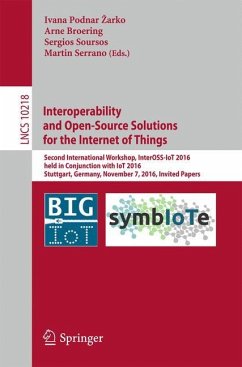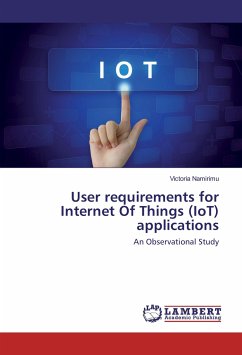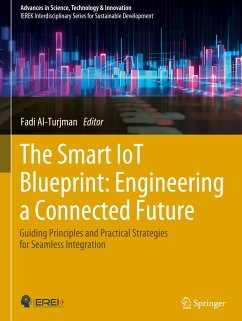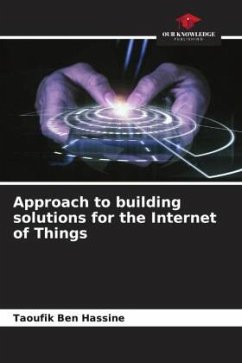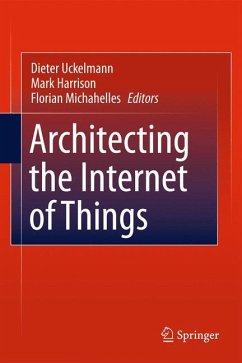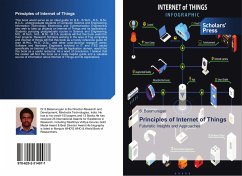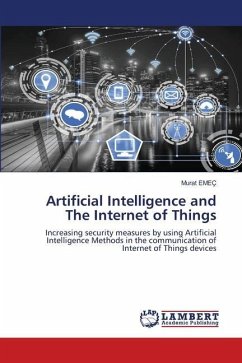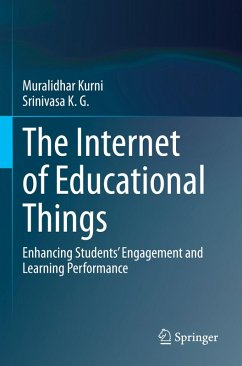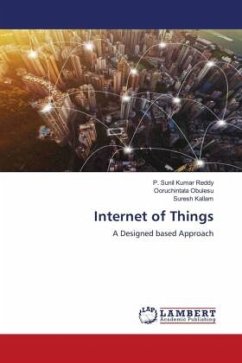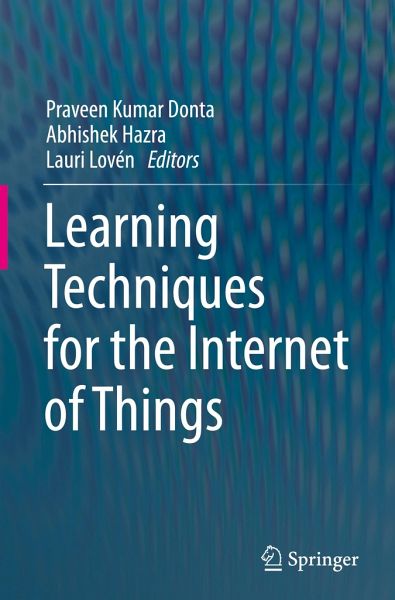
Learning Techniques for the Internet of Things

PAYBACK Punkte
65 °P sammeln!
The book is structured into thirteen chapters; each comes with its own dedicated contributions and future research directions. Chapter 1 introduces IoT and the use of Edge computing, particularly cloud computing, and mobile edge computing. This chapter also mentions the use of edge computing in various real-time applications such as healthcare, manufacturing, agriculture, and transportation. Chapter 2 motivates mathematical modeling for federated learning systems with respect to IoT and its applications. Further Chapter 3 extends the discussion of federated learning for IoT, which has emerged ...
The book is structured into thirteen chapters; each comes with its own dedicated contributions and future research directions. Chapter 1 introduces IoT and the use of Edge computing, particularly cloud computing, and mobile edge computing. This chapter also mentions the use of edge computing in various real-time applications such as healthcare, manufacturing, agriculture, and transportation. Chapter 2 motivates mathematical modeling for federated learning systems with respect to IoT and its applications. Further Chapter 3 extends the discussion of federated learning for IoT, which has emerged as a privacy-preserving distributed machine learning approach. Chapter 4 provides various machine learning techniques in Industrial IoT to deliver rapid and accurate data analysis, essential for enhancing production quality, sustainability, and safety. Chapter discusses the potential role of data-driven technologies, such as Artificial Intelligence, Machine Learning, and Deep Learning, focuses on their integration with IoT communication technologies. Chapter 6 presents the requirements and challenges to realize IoT deployments in smart cities, including sensing infrastructure, Artificial Intelligence, computing platforms, and enabling communications technologies such as 5G networks. To highlight these challenges in practice, the chapter also presents a real-world case study of a city-scale deployment of IoT air quality monitoring within Helsinki city. Chapter 7 uses digital twins within smart cities to enhance economic progress and facilitate prompt decision-making regarding situational awareness. Chapter 8 provides insights into using Multi-Objective reinforcement learning in future IoT networks, especially for an efficient decision-making system. Chapter 9 offers a comprehensive review of intelligent inference approaches, with a specific emphasis on reducing inference time and minimizing transmitted bandwidth between IoT devices and the cloud. Chapter 10 summarizes the applications of deep learning models in various IoT fields. This chapter also presents an in-depth study of these techniques to examine new horizons of applications of deep learning models in different areas of IoT. Chapter 11 explores the integration of Quantum Key Distribution (QKD) into IoT systems. It delves into the potential benefits, challenges, and practical considerations of incorporating QKD into IoT networks. In chapter 12, a comprehensive overview regarding the current state of quantum IoT in the context of smart healthcare is presented, along with its applications, benefits, challenges, and prospects for the future. Chapter 13 proposes a blockchain-based architecture for securing and managing IoT data in intelligent transport systems, offering advantages like immutability, decentralization, and enhanced security.





